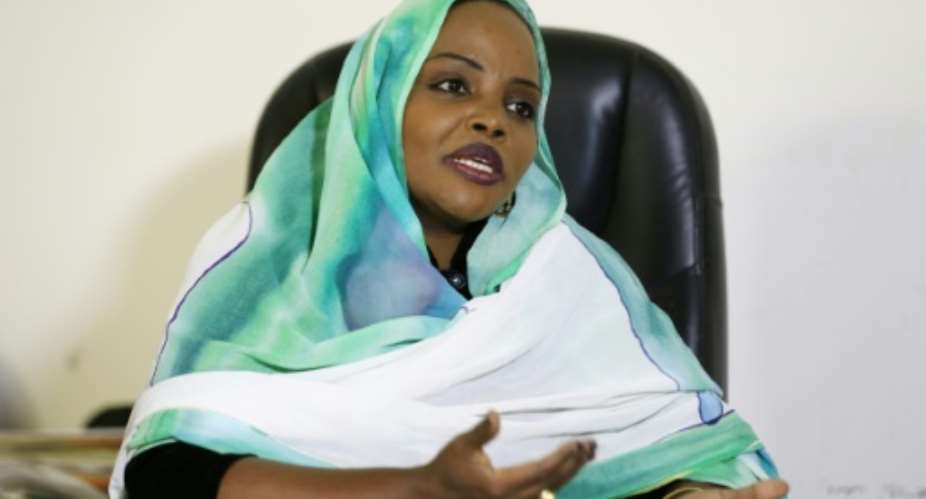Hundreds of Sudanese women Monday marched in Khartoum to mark International Day for Eliminating Violence against Women, in the first such rally held in the northeast African country in decades.
Chanting "Freedom, peace, justice," the catchcry of the protest movement that led to autocrat Omar al-Bashir's ouster in April, the demonstrators took to the streets in the Burri district, a site of regular anti-Bashir protests earlier this year.
Many women, dressed in orange, carried banners that read: "Women's revolution continues" and "We are the revolution, we are the change."
Many also carried banners such as "Stop rape of Darfuri Women," as they called for justice for female victims of the war in the western Sudan region.
"There is an atmosphere of freedom now," said 21-year-old university student Fatima, as others behind her whistled, clapped and ululated, an AFP correspondent reported.
"There is less violence now, but we still need to change the laws that are against us."
Bashir seized power in an Islamist-backed coup in 1989 and since then the role of women had been severely restricted in Sudan.
During his 30-year-old rule, authorities implemented a strict moral code that activists said primarily targeted women, using harsh interpretations of Islamic sharia law.
Thousands of women were flogged and handed hefty fines under a controversial public order law for "indecent dressing" or consuming alcohol, which is banned in the country.
During the protests that rocked Bashir's regime, women were at the forefront, demanding his ouster and an end to violence against them.
The army deposed him on April 11, and his overthrow has triggered hope that laws encouraging violence against women be scrapped.
"I came to demand an end to violence against women," said, Adila Farouk as she marched in the capital's streets.
"I have been subjected to sexual harassment, but it is nothing compared to what other women have faced."





 Dumsor: Energy sector ‘shepherdless’ – Nana Amoasi VII
Dumsor: Energy sector ‘shepherdless’ – Nana Amoasi VII
 Train accident: Four more grabbed and remanded
Train accident: Four more grabbed and remanded
 Gov't to consolidate cash waterfall revenue collection accounts
Gov't to consolidate cash waterfall revenue collection accounts
 Gov't to settle lump sum for retired teachers by April 27
Gov't to settle lump sum for retired teachers by April 27
 Former PPA CEO granted GH₵4million bail
Former PPA CEO granted GH₵4million bail
 Dumsor: The darkness has exposed you; you’ll go down as the worst in Ghana’s his...
Dumsor: The darkness has exposed you; you’ll go down as the worst in Ghana’s his...
 Dumsor: The ‘incompetent’ person provided a timetable whiles those who came to s...
Dumsor: The ‘incompetent’ person provided a timetable whiles those who came to s...
 Defend, ensure NPP’s good works are ‘sold’ and highlight the ‘bad’ state of the ...
Defend, ensure NPP’s good works are ‘sold’ and highlight the ‘bad’ state of the ...
 Bawumia will rank high ahead of Mahama in any anti-corruption test — Salam Musta...
Bawumia will rank high ahead of Mahama in any anti-corruption test — Salam Musta...
 NPP trying to bribe us but we‘ll not trade our integrity on the altar of corrupt...
NPP trying to bribe us but we‘ll not trade our integrity on the altar of corrupt...
